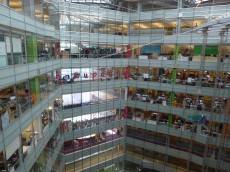January 13, 2014
Retaining valuable employees is top global priority for CEOS this year
 The number one priority of business leaders worldwide this year is how best to develop, engage, manage, and retain existing talent. This worker-centric approach means that employee engagement and better management will take centre stage as the way to improve competitiveness, win new customers and raise productivity. According to new research from The Conference Board and UK partner CMI (Chartered Management Institute), CEOs will concentrate on creating a strong internal talent pipeline rather than seeking to recruit externally, with nine out of the top 10 global Human Capital strategies focused on current employees, including providing training and development, raising employee engagement and increasing efforts to retain critical talent. Other closely linked priorities identified in the CEO Challenge 2014 are customer relationships, innovation, operational excellence, and corporate brand and reputation. (more…)
The number one priority of business leaders worldwide this year is how best to develop, engage, manage, and retain existing talent. This worker-centric approach means that employee engagement and better management will take centre stage as the way to improve competitiveness, win new customers and raise productivity. According to new research from The Conference Board and UK partner CMI (Chartered Management Institute), CEOs will concentrate on creating a strong internal talent pipeline rather than seeking to recruit externally, with nine out of the top 10 global Human Capital strategies focused on current employees, including providing training and development, raising employee engagement and increasing efforts to retain critical talent. Other closely linked priorities identified in the CEO Challenge 2014 are customer relationships, innovation, operational excellence, and corporate brand and reputation. (more…)
























December 16, 2013
Book Review: The Emergent Workplace
by Mark Eltringham • Comment, Facilities management, Workplace design
Looking for patterns in the mash
© Columbia Pictures
It’s rather refreshing to see a book or report in which the word ‘Workplace’ in the title is prefaced by ‘Emergent’ rather than something misleading like ‘Tomorrow’s’ or ‘Future’. And so the authors Clark Sept and Paul Heath define their vision of the workplace presented in this slim but engaging book as a thing which is ‘in the process of becoming prominent’ to use the dictionary definition of the word emergent. By using this particular epithet, they are describing the consequences of the various forces that drive today’s workplace rather than lapsing into the fallacies most commonly associated with works of this kind; principally those of either assuming there is an evolution of all offices towards an ultimate model, or that already commonplace factors such as technology which frees us to work anywhere and at any time can in any way be associated with ‘the future’.
(more…)